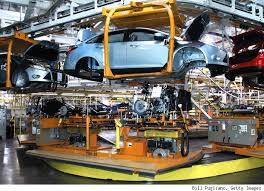

Determining the privacy needs of automotive big data
So many processes are already automated within cars – such as seat belt warnings, lane departure warnings and brake assist – and the future looks bright for more automation. For this reason, Winterkorn suggested that industry leaders and legal experts will need to develop policies that focus on both the need for information collection as well as the protection of drivers to determine what data can and should be monitored and what may be too invasive.
“Our cars are already mobile computer centers, with 1.5 km of cables, more than 50 control units and the computing power of 20 highly advanced PCs,” Winterkorn said at the convention, according to Forbes. “Now we face the considerable challenge of making mobility even more intelligent and more networked together with the IT industry.”
The major issues brought up by the VW CEO focused on what would be done with the collected information in terms of ownership, visibility and sharing said data with others, The Financial Times reported. As technology advances, more vehicles are equipped with smart technology such as self-driving capabilities and infotainment systems that can collect and share information about a vehicle’s driving record as well as the driver’s GPS location, media usage and other data.
Leaders call for big data infrastructure
Winterkorn was not the only leader at the trade fair to place value on this burgeoning sector of IT. German Chancellor Angela Merkel pointed out that there needs to be “an underlying order” of legality surrounding big data collection and use that extends beyond national borders, according to IDG News Service. Other leaders, like Dieter Kempf, president of the German Association for Information Technology, emphasized the need to examine the approach to big data as well as how it is handled.
“We have to wonder whether the approach to data protection that strives to limit collection of personal data can apply in the digital world,” Kempf said, the news source indicated.